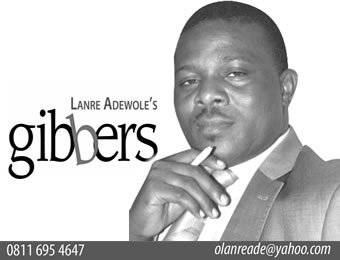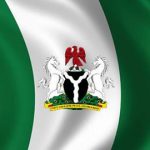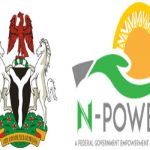A telling political development went practically unnoticed or maybe deliberately ignored last week in Katsina State, the home of ailing President Muhammadu Buhari. It could be everyone was too engrossed in the kite-flying coup-noise. The development also had nothing to do with the opening of a barrack close to the president’s family house. While the barrack could help in fortifying the president’s homestead against coup or its mongering, a gaping hole, bigger than any immediate or future military threat, has opened in Buhari’s backyard, threatening his relevance, popularity, acceptability and likely re-election aspiration, at least if we are to go with Garba Shehu’s cue on the second term project.
While Shehu and other media-minders of the president are at liberty to argue endlessly that the 2015 15 million voters are still solidly with Buhari, empirical evidence may not support their position. The decision to seek a second term will solely be Buhari’s. The idea or argument of being persuaded not to let go, is harebrained. Even kids always do know when to say enough is enough with tasty meal, especially those who have once learnt the hard way of constipation and the huge discomfort over-staying on meals, no matter how sumptuous, brings. Power-explorers may want to urge the president to stake and risk all, including the rigour his health could not sustain, but it would be his decision to say enough is enough.
I have heard claims that a certain Edwin Clark practically compelled Goodluck Jonathan to seek a second (more like a third) term against the grain, spirit and content of an unwritten gentleman agreement to quit in 2015, with the Kiagbodo fellow allegedly arguing that he was too young at 58 to retire from politics. Bunkum. Jonathan wanted to stay on. Simple. I personally supported a second term bid and wished he was still the Commander-In-Chief today. But neither Clark nor I made the decision for Ebele. Just like nobody should take any credit like the tough-talking Northern champion Paul Unogo tried to, last week, for the former president’s decision to let go even when there were good grounds to challenge the figures credited to Buhari, the eventual winner. We are all products of our decisions.
Except the president’s projectors are deliberately being mischievous, it will be foolhardy for anyone to claim he hasn’t lost ground, goodwill and even millions of the Buhari Voter; the one who goes to the voting centre with a heart already locked on who gets his/her vote, regardless of persuasions.
In the last American presidential election, Trump was more blessed of them than Hillary, just like Obama was, against both John McCain and Mitt Romney, the two Republicans he dusted in 2008 and 2012. Buhari was also more blessed of them in 2015 than Jonathan, and in all the contests, the one blessed more of such commitment, carried the day.
While certain demographic distributions and perception appeal would better explain such voting commitment in America, more of ethnic and religious sentiments would account for it, in Nigeria. In a country where your race and religion will qualify you ahead of other constitutional provisions, measuring a politician’s weight, relevance and stock, begins with open demonstration of acceptability at home, whether you are running a local, state or national election.
That sentiment would perfectly fit into Yoruba’s saying of “Ile lati nko eso lo si ode” (You are what your own say you are). For Americans who can even adopt a birth-place in a neo-liberal society they try to build, I must say, with accompanying terrible imperfections like the LGBT phenomenon, you can lose in either your original or adopted homeland and still win with a landslide nationally or statewide. They have transcended the demon of Indigeneship/Settlers disruptive dichotomy, with the focus mainly on the fitting man for the job.
We aren’t there yet, so we make do with what we have. A politician’s kinsmen still hold the perception key here. Though fairly applauded as a military leader, Yakubu Gowon lost all political relevance in the aborted Third Republic immediately Shehu Shagari’s personal physician, then-little known Dalhatu Tafida defeated him during IBB’s Option A4 presidential primary election. Babangida’s model was to test the acceptability of a potential Nigerian president at home, with aspirants required to win at Ward, Local Government, State and National level, thus further consciously or otherwise reinforcing the deep ethnic volatility that has kept the secession agitation and agenda aflame. Gowon, the Abuja big-boy was felled at the LG level and a presidential probable became Baba Aladura-General of Nigeria Prays, while Tafida began a rise that got him where he’s today.
With the benefit of introspection, IBB seemed on a voyage to demystify some so-called heavyweights and nothing would humiliate more than your own saying “we don’t want you to serve us”.
Well, it would be too early to correctly say Nigerians are waving such rejection flag at Buhari. Those who believe their president, are still staunch. There isn’t any credible poll to say he won’t even win a second term on his sick-bed. Afterall, Iyiola Omisore became a senator from Agodi prison. Though the two situations aren’t analogous, yet any form of incapacitation, is expected to have an impact on electoral fortune of the affected fellow and it doesn’t have to be negative. Infact, the voting societies have always responded more with empathy to disabled candidates. But the political news from Katsina is going against the run of play. With the North, needless to say including Katsina, literally turning Buhari to a deity in the course of the 2015 presidential election and awarded him a landslide, emotion is expected to be running riot now that the president is on the sick-bed, miles away from home.
To be continued






